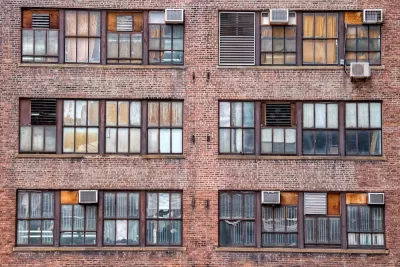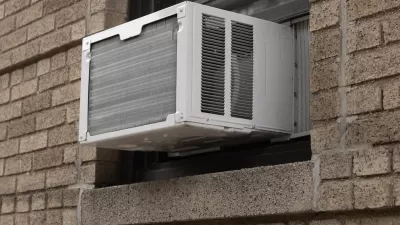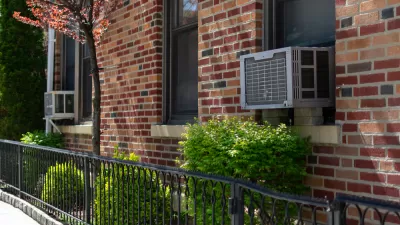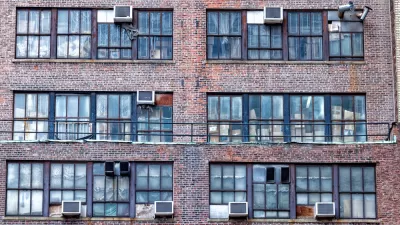Despite hundreds of heat-related deaths every year, the city has no regulations on cooling in residential units.

A New York City Council member is proposing a bill that would guarantee cooling for renters in hot summer months, arguing that a similar law guarantees heating in winter.
According to Council member Lincoln Restler of Brooklyn, “When we looked at the data of who is dying from heat-related illnesses, the single biggest risk factor was not having air conditioning in their homes.”
As Willy Blackmore explains in Word in Black, “The city’s Heat Code became law back in 1918, setting a minimum threshold of 68 degrees for all centrally heated buildings between the beginning of October and the end of May. While the minimum temperature has changed at times over more than a century, it’s a mainstay of being a renter in the city: heat and hot water are provided at the landlord’s expense, with very few exceptions.” The proposed bill would set similar requirements for cooling and include a fee of up to $1,250 per day for noncompliance.
Blackmore explains that cooling units add to landlords’ electricity costs. “Therefore, if a landlord installs a heat pump, or if they have a tenant who uses an A/C window unit, the landlord would be obliged to pay an electric bill for the heat and cooling — separate from what tenants pay for their own electricity use.”
While the majority of New York City residents (91 percent) have access to cooling, the housing units that don’t are concentrated in communities of color like Bedford-Stuyvesant, which Restler represents, and many of the city’s shelters. An average of 350 people die of heat-related causes every year in New York City, though accurate data for heat deaths is often difficult to come by.
FULL STORY: Will New York City Renters Get the Right to Be Cool?

Alabama: Trump Terminates Settlements for Black Communities Harmed By Raw Sewage
Trump deemed the landmark civil rights agreement “illegal DEI and environmental justice policy.”

Planetizen Federal Action Tracker
A weekly monitor of how Trump’s orders and actions are impacting planners and planning in America.

Why Should We Subsidize Public Transportation?
Many public transit agencies face financial stress due to rising costs, declining fare revenue, and declining subsidies. Transit advocates must provide a strong business case for increasing public transit funding.

Understanding Road Diets
An explainer from Momentum highlights the advantages of reducing vehicle lanes in favor of more bike, transit, and pedestrian infrastructure.

New California Law Regulates Warehouse Pollution
A new law tightens building and emissions regulations for large distribution warehouses to mitigate air pollution and traffic in surrounding communities.

Phoenix Announces Opening Date for Light Rail Extension
The South Central extension will connect South Phoenix to downtown and other major hubs starting on June 7.
Urban Design for Planners 1: Software Tools
This six-course series explores essential urban design concepts using open source software and equips planners with the tools they need to participate fully in the urban design process.
Planning for Universal Design
Learn the tools for implementing Universal Design in planning regulations.
Caltrans
Smith Gee Studio
Institute for Housing and Urban Development Studies (IHS)
City of Grandview
Harvard GSD Executive Education
Toledo-Lucas County Plan Commissions
Salt Lake City
NYU Wagner Graduate School of Public Service





























